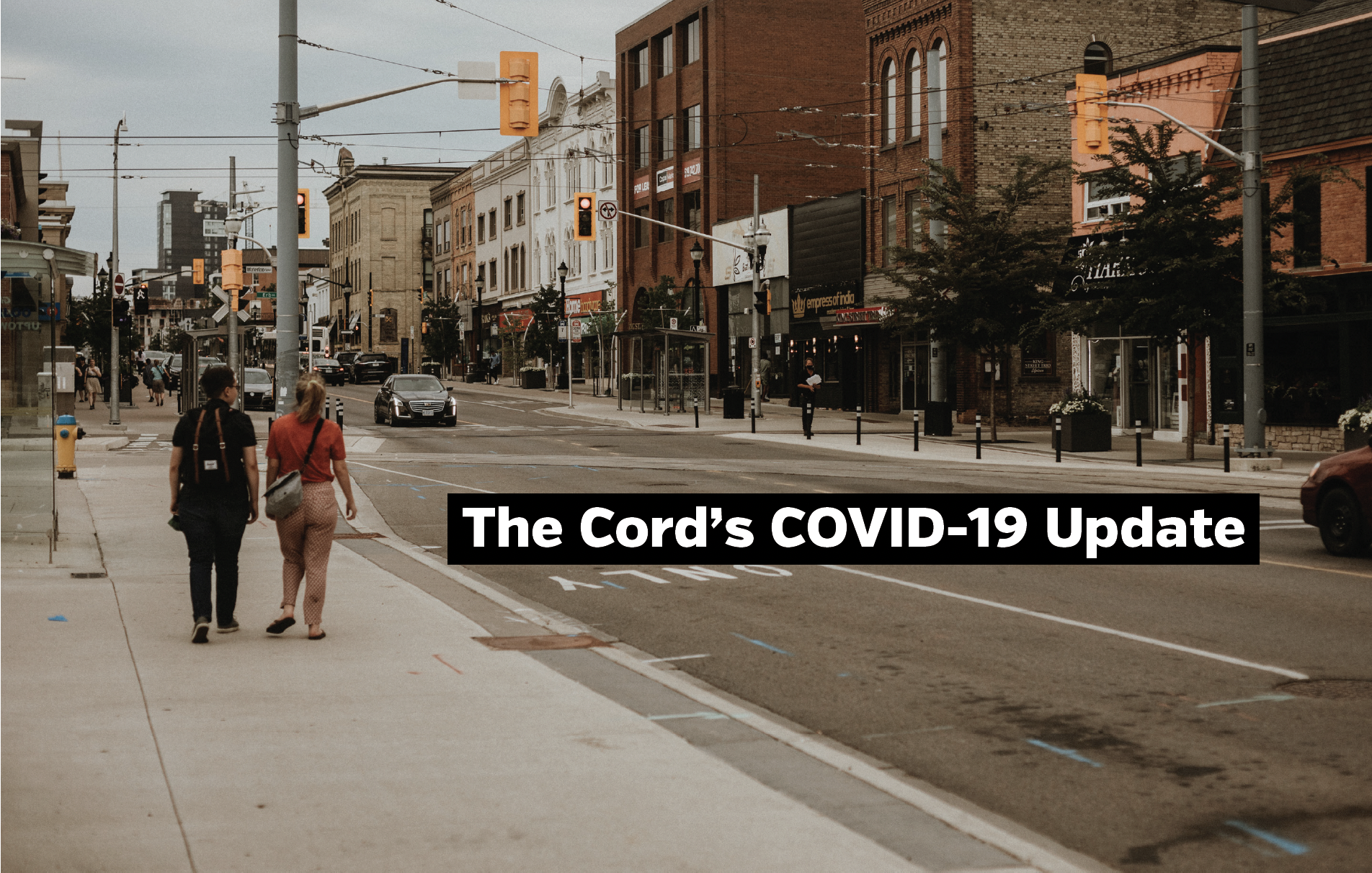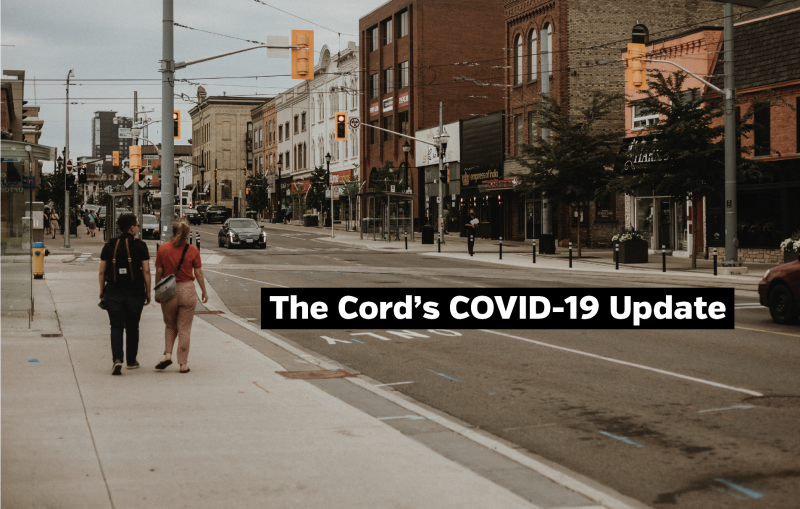COVID-19 update Waterloo Region and the politicization of vaccines and vaccine mandates


As of Monday Nov. 1, there were 49 new cases of COVID-19 logged by health officials since Friday in Waterloo region, bringing the active number of cases to 140.
There are currently seven outbreaks and 15 residents hospitalized for COVID-19 related reasons. No new deaths were reported in the region.
91.02 per cent of eligible residents aged 12 and over in Waterloo have received one dose of a Health Canada approved COVID-19 vaccine and 87.72 per cent are fully vaccinated.
Province-wide, Ontario reported 422 new COVID-19 cases on Monday. 261 of these were amongst residents who were not fully vaccinated or who have an unknown vaccination status, and 161 were in fully vaccinated people.
89.18 per cent of eligible Canadians in the province has received at least one dose, and 84.56 per cent are fully vaccinated.
Three deaths were reported, and the global death toll from COVID-19 has topped five million in less than two years. This death toll is almost certainly underreported due to limited testing and people dying at home.
Anti-vaccine protests are happening across Canada and this is associated with beliefs people hold and technology.
“The protests related to vaccine appear to be more politicized than the vaccine hesitant reactions have been in the past,” Anne Wilson, Wilfrid Laurier University psychology professor, said.
“This is something that social media seems to be particularly optimized to pump up and to make even more divisive.”
Anti-vaccine movements have become more political.
“Perhaps misrepresentations of some of the data that can really make people quite worried about the vaccine,” Wilson said.
People feel that their agency or autonomy is being threatened through the new regulations and rules implemented.
Social media plays a part in this through confirmation bias.
“People tend to be attracted to other people who have similar views to their own and [are] also attracted to information that’s similar to what they already believe,” Wilson said.
The technology used in social media also plays a part.
“There are algorithms that are operating behind the scenes essentially, that are optimizing for our attention,” she said.
Algorithms detect what people see online and find ways to keep them paying attention to the technology for longer by providing more information or more extreme versions of information.
“So it’s not surprising in many cases that we come to very different conclusions about the evidence.”

